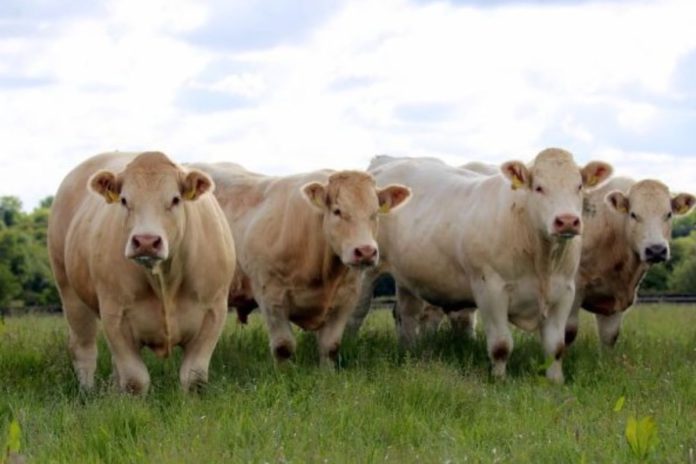The Department of Agriculture, Food and the Marine has warned farmers about the current “increased” risk of the Bluetongue virus.
It can impact all types of ruminant animals, including cattle, sheep, goats, deer, and camelids such as llamas and alpacas.
According to an advisory notice from the DAM, the disease does not affect humans, nor does it impact food safety.
Bluetongue is primarily spread from animal to animal by midges that feed off the blood of an infected animal and then spread the virus to subsequent animals they bite.
The virus can also be spread through biological products such as blood or germinal products such as semen or embryos.
Infected pregnant animals can potentially pass the virus onto their offspring in the womb. This makes these animals a particularly high-risk group for introducing the virus to Ireland.
The Culicoides species of midges, that are capable of spreading the virus are found in many European countries, including Ireland. Furthermore, wind dispersal of infected midges can spread the disease.
To prevent infected midges from entering the country, the DAFM advises you to apply an insecticide to transport vehicles before moving susceptible animals from Bluetongue restricted regions.
In the event of an outbreak
In a statement, a spokesperson for the DAFM said:
“Bluetongue is an exotic animal disease, found in many European countries, which would represent a serious threat to Irish livestock if it were to occur here.”
“Unfortunately, the current good weather with winds coming from the continent brings with it the added risk of biting midges, which may be carrying the disease, being blown here from infected areas in continental Europe.”
As the weather improves, midges become increasingly active, so, the DAFM added, it is “timely” to remind all livestock farmers of the dangers the Bluetongue virus presents and ask for increased vigilance.
“An outbreak of Bluetongue in Ireland would result in the establishment of large disease control zones of 150km radius being introduced with movement and export restrictions applied to animals originating from within these zones.”
“The loss of our Bluetongue-free status could also impact our ability to trade with countries outside of the EU.”
Suspect cases
Bluetongue Virus is a notifiable disease, meaning that there is a legal obligation for any suspect case to be reported to the Dept of Agriculture, Food and the Marine (DAFM).
Report suspect cases to the local Regional Veterinary Office (RVO) (9 am-5 pm).
Outside of office hours, ring the National Disease Emergency Hotline on 01-492-8026, which is operational 365 days of the year.
Importing livestock
In a statement, the DAFM said:
“Play your part in protecting Irish livestock from Bluetongue – a serious disease found across mainland Europe.”
“Understand the disease risks if importing animals – ask your vet or RVO for advice.”
“Avoid importing animals when midges that spread Bluetongue are most active – April – November,” the spokesperson added.
Other articles on That’s Farming:
Incorporate individual farmers’ actions when forming policies to tackle disease outbreaks





